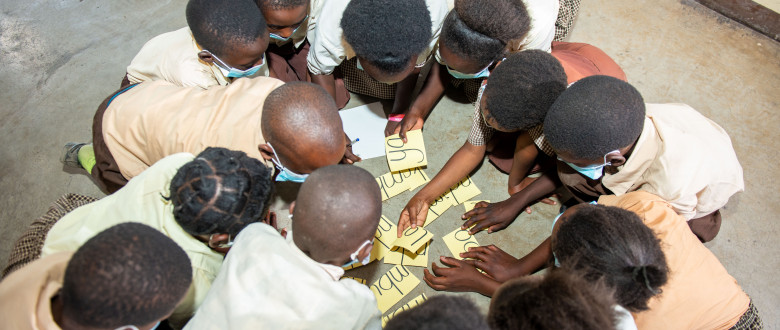
Busara Center, Teaching at the Right Level (TaRL) Africa and VVOB have entered into a unique new partnership to study the influence of teachers’ beliefs and intentions on the delivery of the TaRL program, Catch Up, in Zambia. This research is one of several projects supported by the Bill & Melinda Gates Foundation on how behavioural science principles – or better understanding of teacher attitudes, beliefs, and motivations – can contribute to improved foundational literacy and numeracy (FLN) outcomes.
In response to the learning crisis, Pratham developed the TaRL approach, focused on foundational learning for children in primary school. For a given period of the day or year, teachers arrange children into groups based on their learning level, rather than their age. Teachers then teach tailored to each group’s learning level using specific tools and techniques designed to accelerate learning. At the teacher’s discretion, students can move in and out of learning groups as needed.
Catch Up is now at a critical point in its scaling and sustainability pathway. The programme started with a pilot in 2016-17 covering 80 schools. It has rapidly grown since then, now reaching over 3,350 schools, about one third of the total number of Zambian primary schools. Learning outcomes have improved year on year. As a result, the Ministry of Education has declared nationwide implementation of Catch Up a priority. The Ministry would like to integrate the programme in its own structures, and further innovate and adapt the model. More specifically, the Ministry of Education is building its operational capacity at the national, provincial, district, and school levels, with support from partners.
Maximising the impact of the Catch Up programme on FLN outcomes in Zambia requires teachers to take up and effectively use TaRL methods. Past research from other contexts shows that teachers’ beliefs heavily influence their behaviour in the classroom, and thus, their beliefs likely affect their willingness and ability to change their current practices, and take up and use TaRL methods. There may also be breakdown points between intended and actual action (the “intention-action gap”), which are important to understand in order to encourage quality implementation.
Through this study, we will contextualise findings from past research and uncover new insights on how teachers’ beliefs influence their behaviour in the classroom and the barriers teachers face in increasing the implementation quality of TaRL methods. We will also test behaviourally-informed solutions to further increase and improve TaRL delivery among teachers in Zambia. We will explore various ways to incorporate teachers’ beliefs and behaviours into how we develop and test new solutions.
We will use methods from the rich toolkit of applied behavioural science: the interdisciplinary study of human behaviour, rooted in psychology and experimental economics. We will also draw on our experience in human-centred design, involving teachers and stakeholders in brainstorming and developing solutions to increase and improve TaRL delivery. As a result, our overall approach will be behavioural, human-centred, and contextual.
We hope that our work in this space will serve as inspiration for other organisations that wish to use behavioural insights to increase and improve the delivery of teaching methods. We will be sharing our findings through blog posts and journal articles.




